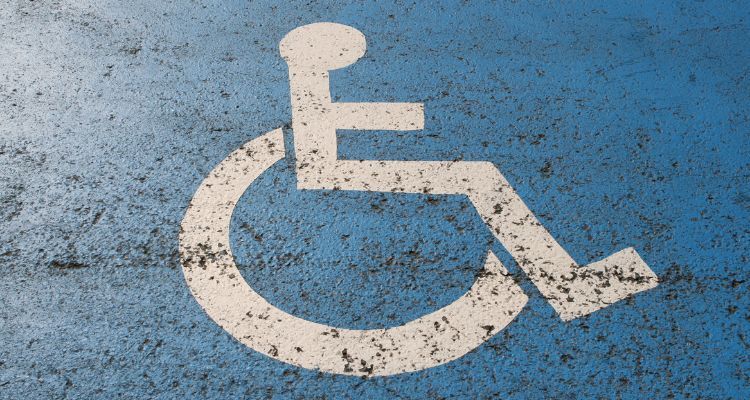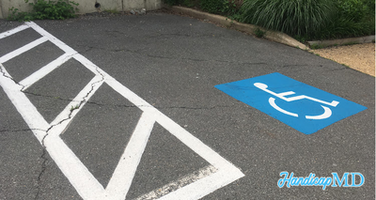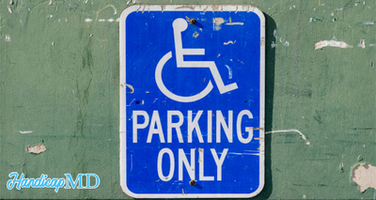
Unveiling the Rules and Regulations of Using a Handicap Placard in Wisconsin
For individuals with disabilities, a disability tag (also known as a placard or permit) is an essential tool that provides access to accessible parking spaces. These spaces, typically located close to the entrances of public buildings, stores, and facilities, are designed to make daily tasks more manageable for those who have difficulty walking long distances or who require the use of mobility aids like wheelchairs or walkers. In WI, disability tags are issued by the Wisconsin Department of Transportation (WisDOT) to individuals who meet specific eligibility criteria.
However, with this privilege comes the responsibility to follow state rules and regulations. Understanding the proper use of a disability tag is crucial to avoiding fines, penalties, or the misuse of the tag, which could result in the loss of privileges. In this comprehensive guide, we will unveil the rules and regulations of using a handicap placard in Wisconsin, outline how to apply for one, explain the penalties for misuse, and answer frequently asked questions (FAQs).
What Is a Disability Tag in Wisconsin?
Definition and Purpose
A disability tag (or placard) in WI is a parking permit issued by the Wisconsin Department of Transportation (WisDOT) to individuals with qualifying disabilities. This tag allows individuals to park in designated accessible parking spaces, typically marked with the international symbol of accessibility. These spaces are usually located near the entrances of public buildings, businesses, medical centers, and other facilities, making it easier for individuals with mobility impairments to access these locations.
The purpose of the disability tag is to ensure that people with disabilities can safely and conveniently access public and private spaces without the added challenge of walking long distances or navigating unsafe parking situations. These tags must be displayed correctly in the vehicle to avoid fines or penalties and to ensure compliance with WI law.
Types of Disability Tags in Wisconsin
WI offers several types of handicap permits to accommodate various needs:
Permanent Disability Tag: Issued to individuals with permanent or long-term disabilities. These tags are valid for four years and must be renewed before they expire.
Temporary Disability Tag: For individuals with temporary disabilities, such as those recovering from surgery or an injury. Temporary tags are valid for up to six months.
Disability License Plates: Available for individuals with permanent disabilities who own or lease their vehicles. These plates provide the same parking privileges as tags but are permanently affixed to the vehicle.
Disabled Veteran Plates: Issued to veterans with service-related disabilities. These plates offer the same parking privileges as other disability plates and honor the veteran's service.
Organization Tags: Non-profit organizations that regularly transport individuals with disabilities may qualify for an organization tag, which allows them to use accessible disabled parking when transporting those individuals.
Eligibility for a Handicap Placard in Wisconsin
To qualify for a disability tag in WI, individuals must have a medical condition that significantly impairs their mobility or limits their ability to walk. This must be certified by a licensed healthcare provider.
Medical Conditions That Qualify
The following conditions may qualify an individual for a disability tag in WI:
- Inability to walk more than 200 feet without stopping to rest.
- Severe lung disease or other respiratory impairments that limit mobility.
- Use of portable oxygen.
- Severe cardiac conditions, such as congestive heart failure, that significantly limit physical activity.
- Dependence on mobility aids, such as a wheelchair, walker, crutches, or cane.
- Severe neurological, orthopedic, or arthritic conditions that impair mobility.
- Legally blind individuals may also qualify for a disability tag.
These conditions must be verified by a healthcare provider who will complete the necessary certification on the application form.
Temporary vs. Permanent Disability Tags
WI offers both temporary and permanent disability tags based on the nature of the disability:
Permanent Disability Tags: These are issued to individuals with long-term or permanent disabilities. They are valid for four years and can be renewed. No new medical certification is required for renewal unless the individual's condition has changed.
Temporary Disability Tags: These are for individuals with temporary conditions, such as recovery from surgery or a short-term injury. Temporary tags are valid for up to six months and can be renewed if the temporary condition persists, with updated medical certification.
How to Apply for a Handicap Placard in Wisconsin
Step-by-Step Application Process
Applying for a disability tag in WI is a straightforward process. Here’s a step-by-step guide:
Obtain the Application Form: Download the Wisconsin Disabled Parking Identification Permit Application (Form MV2948) from the state's Department of Transportation website, or pick up a copy at your local DMV office.
Complete the Personal Information Section: Provide your name, address, date of birth, driver’s license or state ID number, and contact information.
Get Medical Certification: A licensed HandicapMD healthcare provider must complete the medical certification section of the form, verifying that you meet the eligibility criteria for a disability tag.
Submit the Application: You can submit the completed form by mail or in person at a local DMV office. Be sure to include all required documentation, such as proof of identity.
Receive Your Disability Tag: Once your application is processed, you will receive your disability tag in the mail. Processing times may vary, but you should generally expect to receive your tag within two to four weeks.
Required Documentation
When applying for a Wisconsin handicap placard, you will need to provide:
- A completed Disabled Parking Identification Permit Application (Form MV2948).
- Medical certification from a licensed healthcare provider.
- Proof of identity, such as a WI driver’s license or state ID.
There is no fee for applying for a permanent or temporary disability tag in WI, but if you are applying for disability license plates, standard vehicle registration fees may apply.
Where to Submit Your Application
Applications can be submitted by mail to the following address:
Wisconsin Department of Transportation
Special Plates Unit
P.O. Box 7306
Madison, WI 53707-7306
You can also submit the application in person at a local DMV office.
How to Get a Handicap Placard with HandicapMD.com
If you want to simplify the process, you can apply for your disability tag through HandicapMD.com. This service guides you through the application, connects you with licensed medical professionals for the required certification, and submits your application to the state's DMV on your behalf.
Using HandicapMD.com reduces the paperwork hassle and ensures your application is completed correctly. The website also offers a tracking service so you can check the status of your application in real time.
Required Documentation for Disability Tags
To apply for a disability tag in WI, you will need to gather the following documents:
- Completed application form (MV2948 for individuals, MV2941 for organizations)
- Medical certification signed by a licensed physician, chiropractor, or advanced practice nurse prescriber
- Proof of identity (driver’s license or ID card)
Having these documents ready can expedite the process.
Cost and Fees
In WI, the application for a disability tag is free for most types. However, replacing lost or stolen tags may incur a nominal fee. It’s always a good idea to check the WisDOT website for up-to-date information on costs.
Renewal Process
Renewing your disability tag in WI is a straightforward process, but it’s important to plan ahead to ensure there are no gaps in your eligibility to use accessible parking.
Renewal Process for Permanent Tags
Permanent disability tags are valid for four years. The state's DMV will send a renewal notice before your tag expires, which will include instructions for renewing.
You do not need new medical certification for a permanent tag, but you must still complete the renewal application. Once submitted, your new tag will be mailed to you.
Renewal Process for Temporary Tags
Temporary tags are valid for up to six months and may be renewed if the disability persists. However, you’ll need to submit a new application with updated medical certification to confirm that you still qualify for the temporary tag.
How to Use a Handicap Placard Correctly in Wisconsin
Where and When to Display the Tag
When using a handicap placard, it’s important to display it correctly to avoid fines and ensure you are in compliance with WI’s laws.
Hang the Tag from Your Rearview Mirror: WI law requires that the disability tag be hung from the rearview mirror when the vehicle is parked in an accessible space. The front of the tag, showing the permit number and expiration date, should face the windshield.
Remove the Tag When Driving: The tag must be removed from the mirror when the vehicle is in motion, as leaving it hanging can obstruct the driver’s view and is against WI’s driving laws.
Use the Tag Only When the Permit Holder Is Present: The disability tag can only be used when the person to whom it was issued is either driving the vehicle or riding as a passenger. Using the tag without the permit holder present is considered misuse and is subject to fines.
Rules for Using a Disability Tag
Park Only in Designated Accessible Spaces: Disability tags grant access to spaces marked with the international symbol of accessibility. These spaces are reserved for individuals with disabilities and are typically located near entrances.
Time Limits and Metered Parking: In some areas, individuals with a disability tag may park in metered spaces for free or for an extended period. However, it’s important to check local regulations, as time limits and fees may vary.
Parking in Other Areas: Having a disability tag does not allow you to park in fire lanes, loading zones, or other restricted areas. Always follow posted parking rules.
Common Mistakes to Avoid
To avoid fines or penalties, make sure you avoid these common mistakes:
Failing to Display the Tag: Forgetting to hang the disability tag from the rearview mirror when parking in an accessible space can result in a fine, even if you are otherwise eligible to park there.
Using an Expired Tag: Be sure to check the expiration date on your disability tag and renew it before it expires.
Allowing Others to Use Your Tag: It is illegal to allow someone else to use your disability tag unless you are present in the vehicle. Misuse of the tag can result in fines and the revocation of parking privileges.
Penalties for Misuse of a Disability Tag
Fines for Misuse
In WI, misuse of a disability tag can result in significant fines. Common forms of misuse include:
- Using someone else’s tag without the authorized person being present.
- Parking in an accessible space without displaying a valid tag.
- Using an expired or counterfeit tag.
Fines for violating disability parking regulations can range from $150 to $500, depending on the severity of the violation. In some cases, vehicles parked illegally in accessible spaces may also be towed at the owner’s expense.
Revocation of Disability Parking Privileges
If an individual is found to be misusing a disability tag, the Wisconsin Department of Transportation may revoke the individual’s parking privileges. This means the person may no longer be able to apply for a disability tag in the future.
Reporting Disability Tag Abuse
If you witness someone misusing a disability tag, such as parking in an accessible space without a valid tag or using someone else’s tag illegally, you can report the violation to local law enforcement or parking enforcement authorities. Be sure to provide details such as:
- The license plate number of the offending vehicle.
- A description of the vehicle and its location.
- The date and time of the violation.
Reporting abuse helps ensure that accessible parking spaces remain available for those who genuinely need them.
Benefits and Limitations of Disabled Permits
Benefits:
- Portability: One of the primary advantages of a disability tag is its portability. You can use the tag in any vehicle, making it ideal for individuals who drive multiple cars or rely on different drivers.
- Flexibility: Disability tags offer greater flexibility in terms of usage, as they are not tied to a specific vehicle.
- Temporary Solutions: For individuals with temporary disabilities, disability tags are the only option, as they are available for short-term use.
Limitations:
- Vulnerability to Theft or Loss: Because disability tags are portable, they can be more susceptible to theft or loss. If not displayed correctly, they can also be forgotten or misplaced.
- Visibility Issues: Disability tags must be removed when driving, as leaving them hanging from the rearview mirror can obstruct the driver’s view. This adds an extra step to parking and driving routines.
Frequently Asked Questions (FAQs)
1. Can I use my WI disability tag in other states?
Yes. Disability tags issued in WI are recognized in all other U.S. states under the Americans with Disabilities Act (ADA). You can use your tag to park in designated accessible spaces when traveling. However, be sure to check local parking regulations, as some states may have different rules regarding time limits or parking fees.
2. How long are disability tags valid in WI?
- Permanent disability passes are valid for four years and must be renewed before they expire.
- Temporary disability passes are valid for up to six months and can be renewed with updated medical certification if necessary.
3. What should I do if my disability tag is lost or stolen?
If your disability tag is lost or stolen, you can request a replacement by submitting a new application to the state's Department of Transportation (WisDOT). You may need to provide proof of identity and explain the circumstances of the loss or theft. There is no fee for replacing a lost or stolen pass.
4. Can someone else use my disability tag without me?
No. A disability tag can only be used when the person to whom it was issued is present in the vehicle, either as the driver or a passenger. Allowing someone else to use your tag without you is illegal and can result in fines and the revocation of your tag.
5. How do I renew my disability tag in WI?
To renew a permanent disability tag, you can submit a renewal application to the state's Department of Transportation. No new medical certification is required unless your condition has changed. For temporary tags, a new application with updated medical certification is needed if the condition persists.
Conclusion
Understanding the rules and regulations of using a handicap placard in Wisconsin is key to ensuring that you fully enjoy the benefits while staying compliant with state law. From the initial application process to renewing your tag, it’s important to follow the proper steps and guidelines. Disability tags in Wisconsin provide essential parking accommodations for individuals with disabilities, making it easier to access public spaces and facilities.
By following the guidelines outlined in this article, you can avoid penalties, fines, and the loss of your disability parking privileges. Additionally, by renewing your tag or license plate on time and using accessible parking spaces only when needed, you’ll contribute to ensuring that these spots remain available for those who genuinely require them.
Understanding the rules surrounding disability tags in WI is key to making the most of your parking privileges while staying compliant with state laws.
.png)






